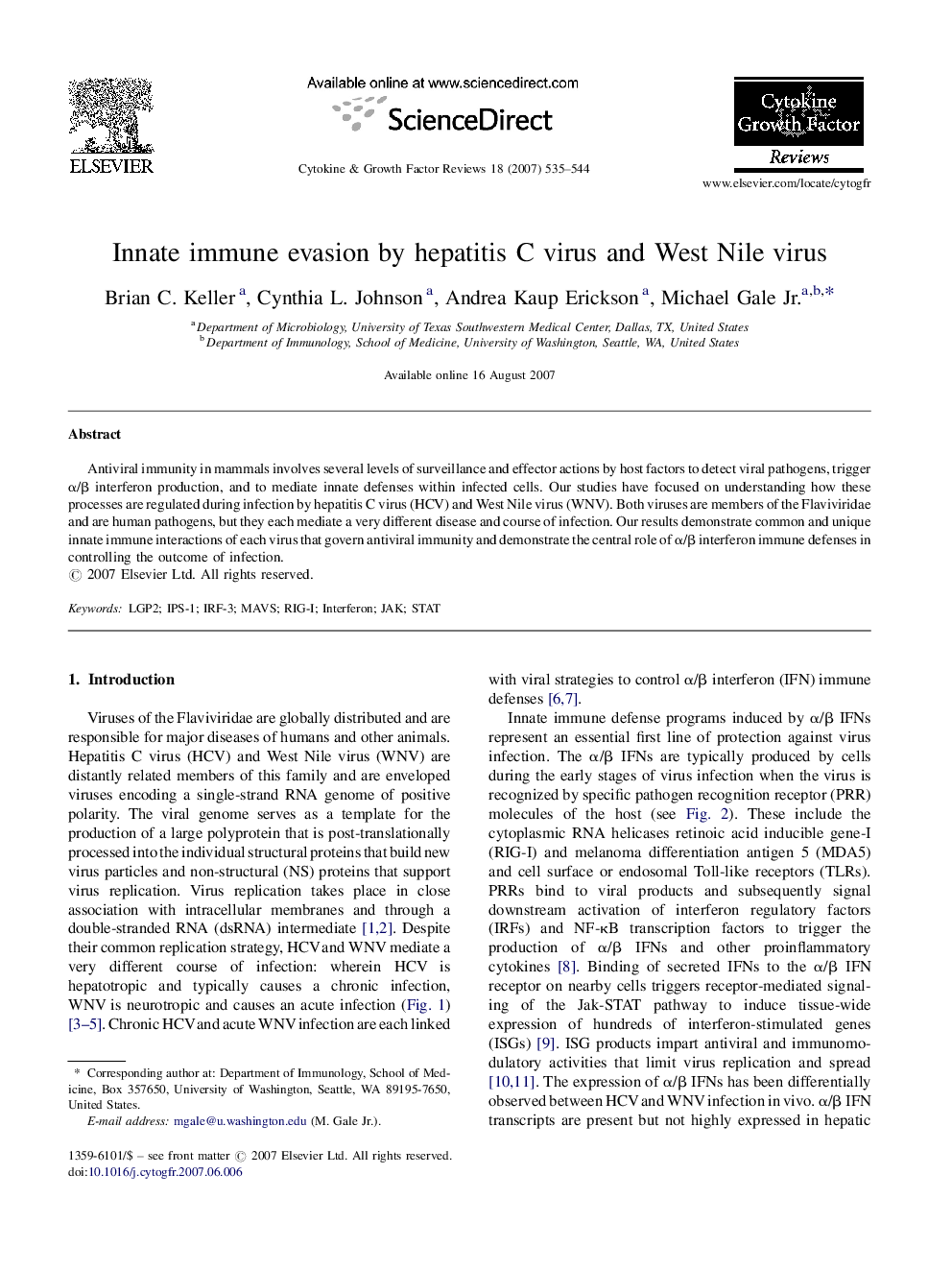| Article ID | Journal | Published Year | Pages | File Type |
|---|---|---|---|---|
| 2170963 | Cytokine & Growth Factor Reviews | 2007 | 10 Pages |
Abstract
Antiviral immunity in mammals involves several levels of surveillance and effector actions by host factors to detect viral pathogens, trigger α/β interferon production, and to mediate innate defenses within infected cells. Our studies have focused on understanding how these processes are regulated during infection by hepatitis C virus (HCV) and West Nile virus (WNV). Both viruses are members of the Flaviviridae and are human pathogens, but they each mediate a very different disease and course of infection. Our results demonstrate common and unique innate immune interactions of each virus that govern antiviral immunity and demonstrate the central role of α/β interferon immune defenses in controlling the outcome of infection.
Related Topics
Life Sciences
Biochemistry, Genetics and Molecular Biology
Cell Biology
Authors
Brian C. Keller, Cynthia L. Johnson, Andrea Kaup Erickson, Michael Gale Jr.,
